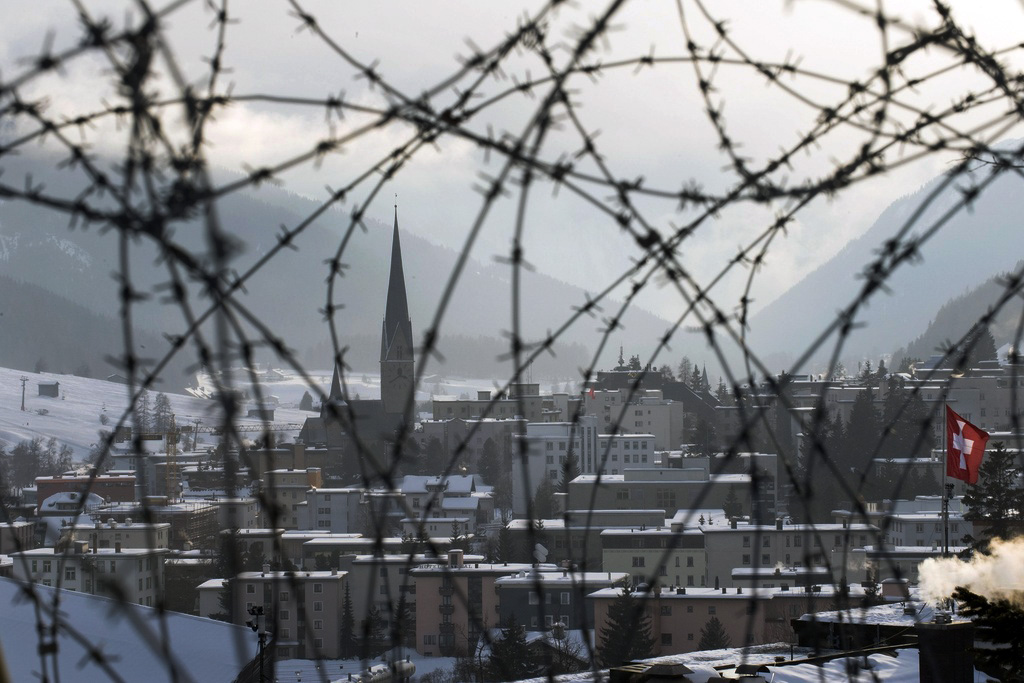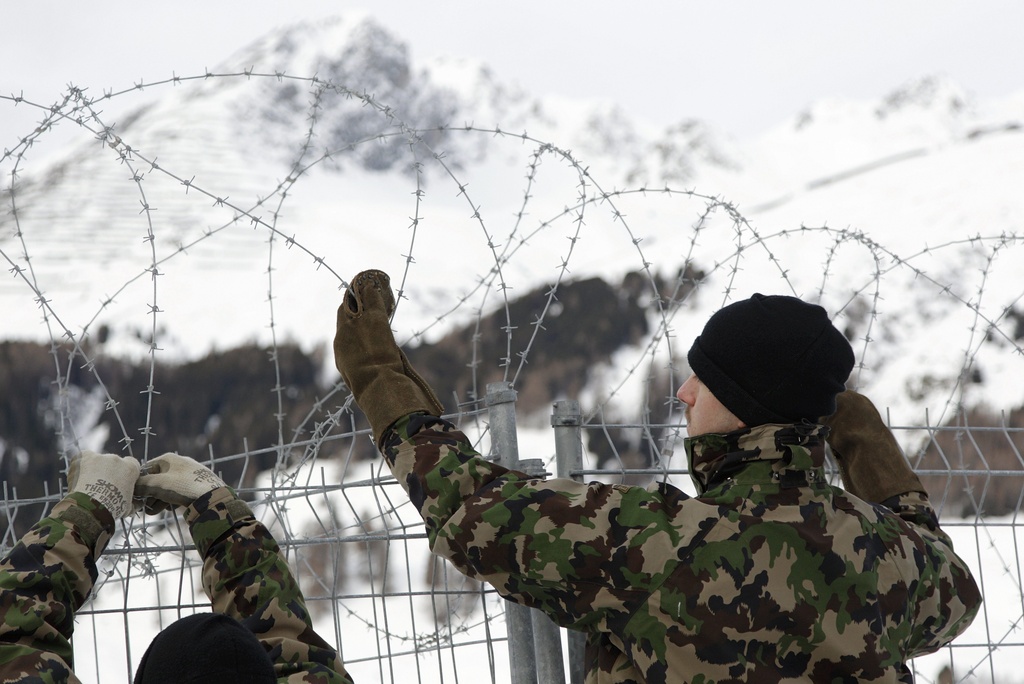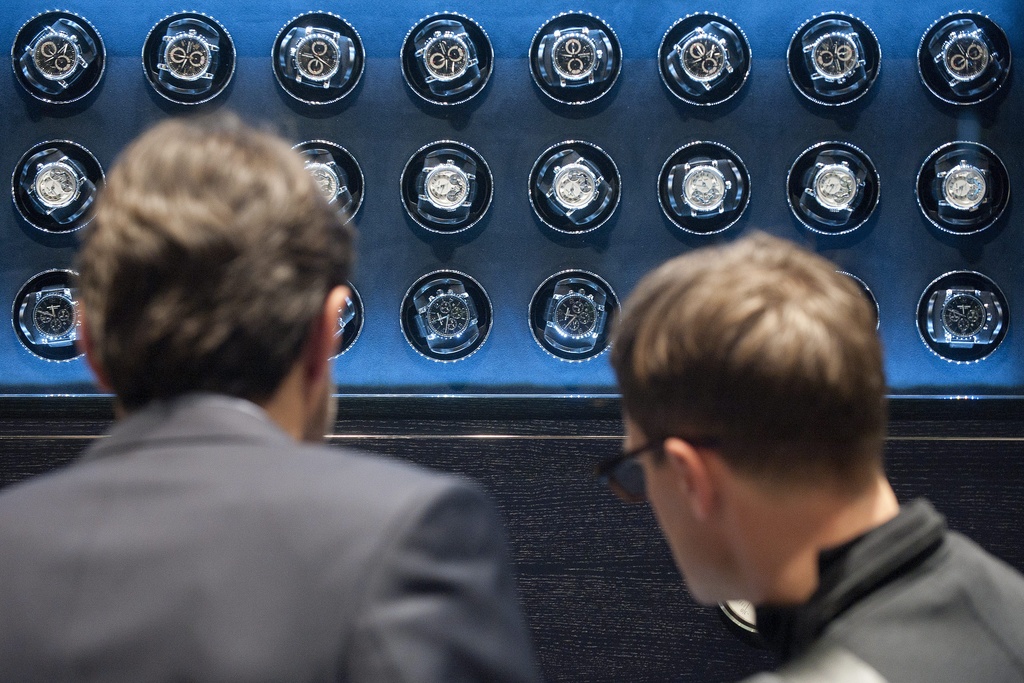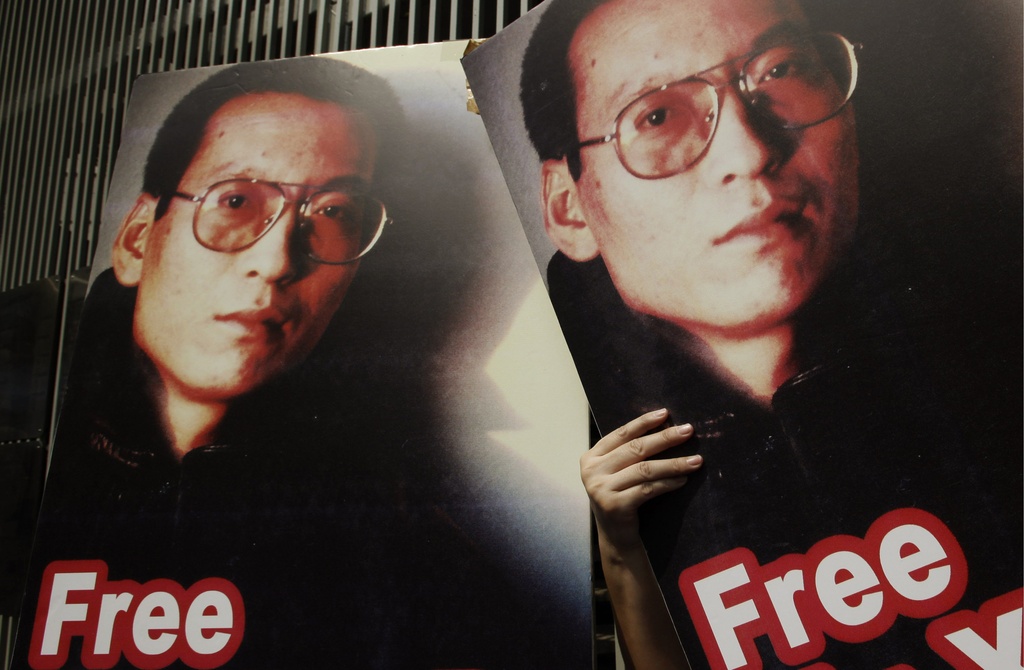Swiss seek Davos boost for China trade talks

Switzerland will use this week’s World Economic Forum annual meeting to help move along Free Trade Agreement (FTA) talks with China during behind the scenes talks.
Swiss Economics Minister Johann Schneider-Ammann said he will meet China’s trade minister, Chen Deming, on Friday as Switzerland seeks to beat the European Union to a lucrative deal with the fastest growing world economy.
“The chances are good that we can conclude a free trade agreement with China before the EU,” Schneider-Ammann said. “This would present Switzerland with a big competitive advantage.”
A feasibility study published last year suggested that Switzerland’s gross domestic product (GDP) could be boosted by 0.23 per cent while firms could make annual savings of SFr290 million ($304 million) per year if trade barriers are lifted.
China is Switzerland’s third-biggest export market after the EU and the United States, with some 300 Swiss firms located in the Asian powerhouse economy among a total of 700 companies that are active there.
Talks to bring about an FTA with China have been going on for several years and a framework for formal negotiations was established during a visit by former Swiss Economics Minister Doris Leuthard in August of last year. Both sides will begin thrashing out specific details this year.
Finding solutions
The scheduled meeting between Schneider-Ammann and Chen Deming is another example of the corridors of Davos being used to thrash out problems or reach agreements on an international stage.
The annual meeting represents an ideal informal meeting place for political and business leaders and representative from the worlds of civil society, culture and science.
Last year Doris Leuthard met up with French officials to discuss ways to resolve an impasse between the two countries over tax evasion and Swiss banking secrecy. In previous years the meeting has been credited with easing flashpoints between Greece and Turkey, in the Middle East and in the period leading up to the fall of the Berlin Wall.
Many eyes will also be on Davos this year to see if it can provide answers to problems relating to the latest round of Doha trade negotiations or the current crisis facing the euro and indebted EU nations.
The economic and political importance of China has accelerated at a growing pace in the last decade. Its economy survived the financial crisis intact and is tipped by some observers to continue its double digit annual growth for some years to come, possibly overtaking the US in the foreseeable future.
New markets
Quite apart from seeking a foothold in new and growing markets, some Swiss firms are also being pushed away from their traditional European markets by stagnant economic growth in the region and the rising value of the franc against the euro.
As Swiss-produced exports become more expensive, and thus less appetising to the European market, companies are being urged to look further afield for new customers and cheaper production sites.
“With today’s exchange rates, if you operate in Switzerland and sell outside you are in trouble,” Tom Malnight, professor of strategy and general management at the IMD business school in Lausanne, told swissinfo.ch. “Most companies are thinking that they cannot be subject every year to changes in exchange rates.”
“In future, companies will have to become much more flexible, adaptive and have the ability to modify and move.”
Human rights
But the move to forge closer trade ties with China has met with some criticism from civil rights groups.
Chinese President Hu Jintao struck a conciliatory note in a speech last week during a state visit to Washington, admitting that more work needs to be done to improve China’s human rights record.
But many observers will not be happy until they see President Hu’s remarks being followed up with concrete action. Speaking to swissinfo.ch last year, Thomas Braunschweig of Swiss civil rights group Berne Declaration urged Switzerland to make sure that any profits secured from an FTA are not made at the expense of Chinese workers.
“We are not against the negotiations, which will give Switzerland some room to encourage China to pledge itself to respect human rights,” Braunschweig said.
“What we are demanding is that binding clauses on human rights should be included in the agreement, and that there should be a preliminary study about the impact that an FTA could have on ordinary people’s economic and social rights.”
Switzerland recognised the newly established People’s Republic of China on January 17, 1950, one of the first Western states to do so. It simultaneously withdrew recognition of the Republic of China (Taiwan).
Contacts with the People’s Republic were not initially close, owing to internal turmoil in China and the Cold War. The People’s Republic made its first appearance on the international stage when Chinese premier Zhou Enlai took part in the Indochina Conference in Geneva in 1954.
Bilateral relations between Switzerland and China have developed at a brisk pace since Deng Xiaoping launched his policy of liberalisation and reform in 1979.
There are currently 3,297 Swiss living in China. Around 300 Swiss firms with some 700 branches are active.
Since 2002 China, including Hong Kong, has been Switzerland’s most important trade partner in Asia. Swiss exports totaled SFr5.2 billion last year (10% down on 2008), while imports to Switzerland amounted to SFr4.9 billion (down 4%).
In the world as a whole, China is the third biggest exporter to Switzerland behind the EU and the US. China is also Switzerland’s third-biggest export market after the EU and the US.
The World Economic Forum started life as the European Management Forum in 1971.
Formed by German-born businessman Professor Klaus Schwab, it was designed to connect European business leaders to their counterparts in the United States to find ways of boosting connections and solving problems.
It is a non-profit organisation with headquarters in Geneva and is funded by the varying subscription fees of its members.
The forum took its current name in 1987 as it broadened its horizons to provide a platform for finding solutions to international disputes.
WEF conducts detailed global and country specific reports and conducts other research for its members. It also hosts a number of annual meetings – the flagship being Davos at the beginning of each year.
Davos has attracted a number of big names in the world of business, academia, politics and show business. These include: Nelson Mandela, Bill Clinton, Tony Blair, Bono, Angela Merkel, Bill Gates and Sharon Stone.
The 2011 Davos meeting takes place from January 26 to 30 and will attract 2,500 delegates from 90 countries.

In compliance with the JTI standards
More: SWI swissinfo.ch certified by the Journalism Trust Initiative












You can find an overview of ongoing debates with our journalists here . Please join us!
If you want to start a conversation about a topic raised in this article or want to report factual errors, email us at english@swissinfo.ch.